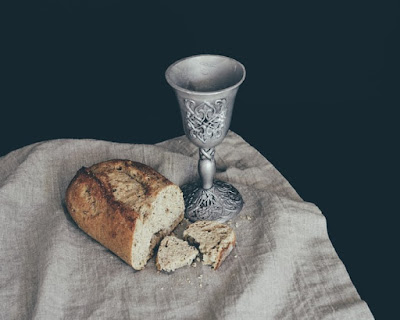Our Sacred Ceremony
This is the fourth in a series highlighting the simple and the sacred.
The “sacred” invites us to see something as special, as set apart. The sacred invites us to experience God in a way that speaks to our minds and to our hearts. Today I want to highlight Communion – a sacred act Jesus implemented.
I want to highlight this because I think we all can take this ceremony for granted. And yet, it is such a powerful reminder of what Jesus has done – and will do – for us.
Who were the first people to take communion?
On the last night of Jesus’ life, he and his friends met for the annual Passover meal. As a religious Jew, Jesus had taken the Passover Meal for years. The elements and words repeatedly spoken told the story of God’s angel of death passing over the homes of the Israelites when it came to Egypt. Every year, the Jews re-told the story of God’s promises, deliverance and redemption. The symbolism for the Jews was powerful.
But on this last night of Jesus’ life, he brought a new meaning to the Passover meal; expanding its message from one of deliverance and redemption for the Jews, to one of deliverance and redemption for all people everywhere. As he and his friends shared this special meal, Jesus asked them to repeat this act of faith and remembrance of him in the future.
By what names is it referred to and what specific elements are used?
This special memorial is remembered by different terms, which each one emphasizing a different aspect of this sacred ceremony. The “Lord’s Supper” commemorates the Passover meal that Jesus ate with his disciples. Through the “Eucharist” (thanksgiving), we thank God for Christ’s work for us. In the “Communion,” we commune (fellowship) with God and other believers.
Most often Christians use flat breads and wine or grape juice, copying Jesus’ use of those elements (which were part of the Passover meal). However, there may be times due to location or accessibility, where we cannot emulate the biblical model. When that happens, we should do the next best thing.
For it's easy to focus on what we call it, or what kinds of bread or juice we use, or even where we are when we take it. But the symbols are embedded in the powerful words of Jesus and the attitude of our hearts.
Paul criticized the Corinthian Christians for the manner in which they took the Lord’s Supper (1 Cor 11:20-22) because they were being inconsiderate of one another and irresponsible with sharing this special act. Paul wrote, “Everyone should take a careful look at themselves before they eat the bread and drink from the cup” (1 Cor 11:28).
So how should we approach taking communion today?
Communion is an action based on faith. Corporately in large or small groups, or individually, communion invites us into quiet reflection. To ask questions, such as: Are there ways in which Jesus had delivered you? Redeemed you? You might take an opportunity to consider these types of questions when you take communion.
Communion is an action based on faith. Corporately in large or small groups, or individually, communion invites us into quiet reflection. To ask questions, such as: Are there ways in which Jesus had delivered you? Redeemed you? You might take an opportunity to consider these types of questions when you take communion.
I hope these reminders help us never to forget that taking communion is a gift and sacred act. It is a powerful symbol of our faith, as we remember Jesus, the author and finisher of our faith.


Comments
Post a Comment